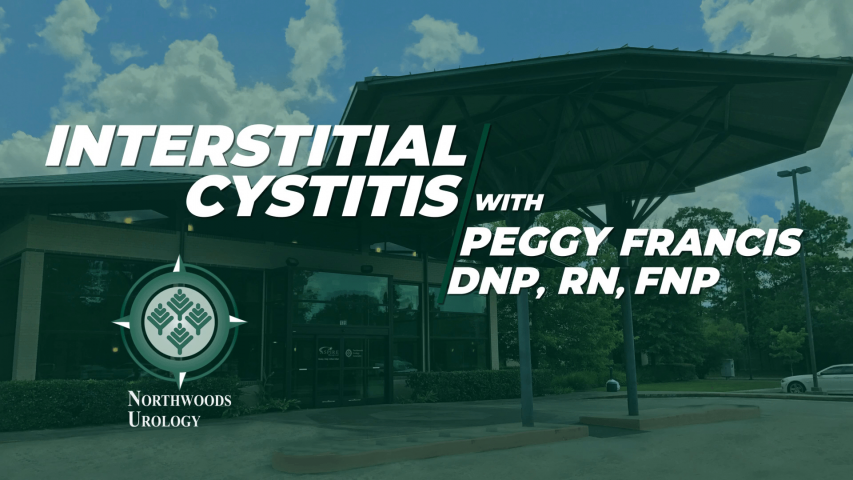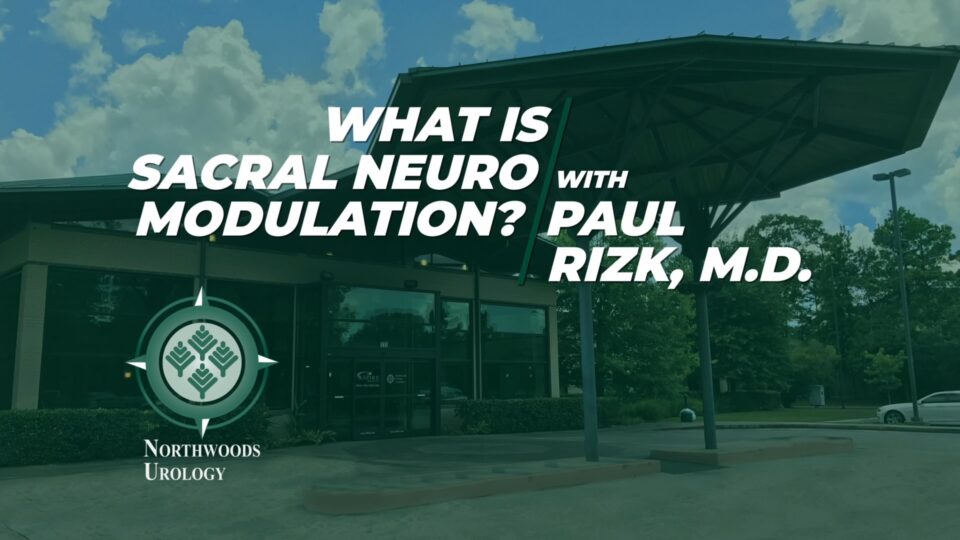Transcript of Video
Hi, my name is Peggy Francis, and I’m a Nurse Practitioner here at Northwoods Urology. I’d like to talk to you for a minute today about interstitial cystitis. Interstitial cystitis, we also call IC, because if you say interstitial cystitis three times in a row, fast, it’ll tie your tongue in a knot, IC is a condition of the very innermost layer of the bladder.
That layer, in people who don’t have this condition, is completely intact. In people who have IC, there are gaps in that layer and the urine can come in contact with the sensitive membranes of the bladder, causing the same symptoms you would have with the urinary tract infections, so frequency, urgency, pressure, burning. This condition is also called painful bladder syndrome, so patients will say that they have pain in their bladder 24 hours a day, seven days a week. That innermost layer of the bladder is called the GAG layer, G-A-G. The reason we call it the GAG layer is because the actual wording is glycosaminoglycan. In people who have this condition, they often have the symptoms of a urinary tract infection when it is what we call an IC flare. There’s no concrete way to diagnose this.
There are many subjective symptoms to IC, so unlike diabetes, where you can have your blood sugar level checked to find out if you have diabetes, or hypertension where you have your blood pressure checked to see that you have hypertension, there’s no clear way to diagnose IC. Not all patients have the same symptoms. As a general rule, though, one of the things we do know about IC is that your diet plays a very important role in controlling your symptoms. So things like coffee, tea, citrus, sodas, any of the things that can irritate the bladder will also irritate the symptoms of IC because the urine comes in contact with the sensitive membranes of the bladder.
The challenge with IC is that often patients have had some of these symptoms for years before they finally see somebody who actually knows what they have, and that’s partly due to the fact that we don’t understand what causes IC. There are a lot of theories out there. There’s theories related to the overuse of antibiotics, theories related to allergies; some patients noticed that when the pollen allergies are really high, they also have these symptoms. For women, sometimes they notice the symptoms are worse related to something in their cycle, when they’re having periods. We do know that in research we see more IC in patients who’ve had any kind of pelvic trauma, so trauma can be an accident, a broken pelvis, can be any kind of a surgery, can be rape. We know that anybody that has had any trauma to their pelvis has a higher incidence of contracting interstitial cystitis. It is not a disease process that we can actually cure.
It is a disease process that we need to recognize and try to help you control the symptoms and live with the symptoms. IC is not limited just to women, though it’s a higher incidence in women. It also occurs with men and often has been misdiagnosed as prostatitis. If you think you might have interstitial cystitis, I would urge you not to Google interstitial cystitis. There are so many things about this disease process that are not understood, so you will find a lot of crazy people out on the internet trying to help you understand interstitial cystitis, so if you think you might have these symptoms, here we have a list of reputable websites that you can go to.
We are here to help you understand this disease process, learn to live with it, and manage your symptoms, so if you think you might have this issue, please call us, make an appointment, and let’s talk.




